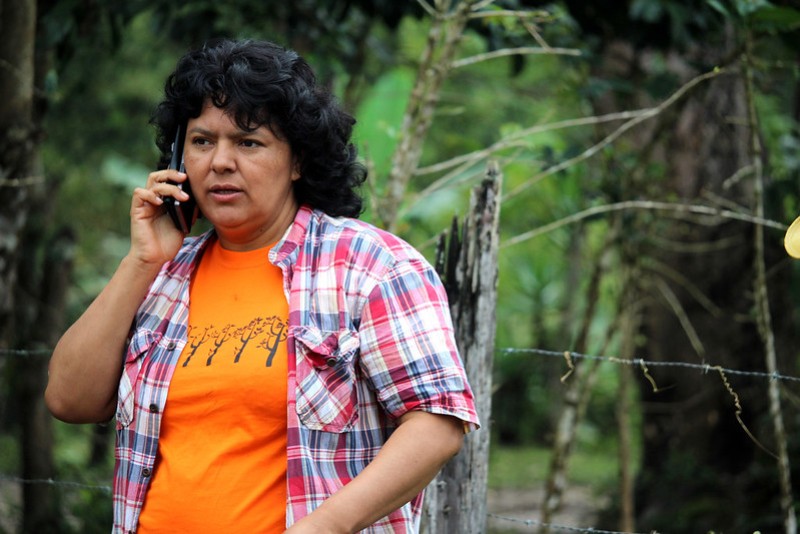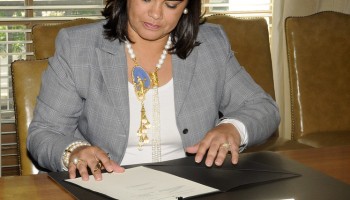Roberto David Castillo Mejía orchestrated Cáceres’ death as part of a plan to remove any obstacles to the construction of the Agua Zarca dam on the Gualcarque River, a region described as sacred by the Lenca indigenous people, the Attorney General’s Office stated in a press release.
The Agua Zarca project was seen as a major threat to the environment as well as to the lifestyle of the local people living along that river.
Gunmen brutally shot Cáceres in her home on March 3, 2016.
The Civic Council of Popular and Indigenous Organizations of Honduras (Copinh) which she co-founded tweeted that “Castillo Mejía is just one link in the chain of command that ordered the murder of the Copinh leader.”
Global Witness stated that her death was tragically not an isolated incident. Honduras has consistently been one of the deadliest countries in the world for land and environmental defenders. More than 120 people who had taken a stand against dams, mines, logging or agriculture were killed in Honduras between 2010 and 2017.
Castillo Mejía allegedly used his proximity to Cáceres as a strategy to obtain information about her whereabouts. Prior to her assassination, the two had allegedly met several times in the capital city Tegucigalpa.
In June 2021, Castillo Mejía was found guilty of the murder. Shortly after his conviction, the Dutch Entrepreneurial Development Bank (FMO) said they were devastated to learn they had financed a project from a company whose executive director had been convicted of murdering an environmentalist.
Castillo Mejía is the eighth person to be sentenced in connection to the murder. In late 2018, a Hounduran court sentenced Sergio Rodríguez and Douglas Bustillo, Desa’s officials, to 30 years in prison, as well as the ex-military Mariano Díaz. The assassins Edilson Duarte, Oscar Torres, Henry Hernández and Elvin Rápalo received 50 years.
Cáceres’ daughter, Olivia Zúniga Cáceres, tweeted that she was outraged because Castillo Mejía had “not received the maximum sentence.”
Copinh believes there will be complete justice only when supposed intellectual authors of the crime, who they believe are the brothers Jacobo, José Eduardo, Pedro Atala Zablah and Daniel Atala Midence, have been captured, prosecuted and sentenced. The Atala Zablah family was associated with Desa’s committee from where systematic attacks against Copinh and Cáceres were allegedly planned and authorized.
Cáceres won a Goldman prize as an environmental defender in 2015 because of her role in the fight against the construction of the Agua Zarca dam. Last month, Honduran lawmakers named Cáceres National Heroine. They also approved the creation of a Berta Cáceres prize and the inclusion of her image with the message “Wake up humanity, there is no more time” in the 200 lempiras bill.
“Our decision seeks to recognize and preserve the legacy of Cáceres for Honduras,” a lawmaker said.






